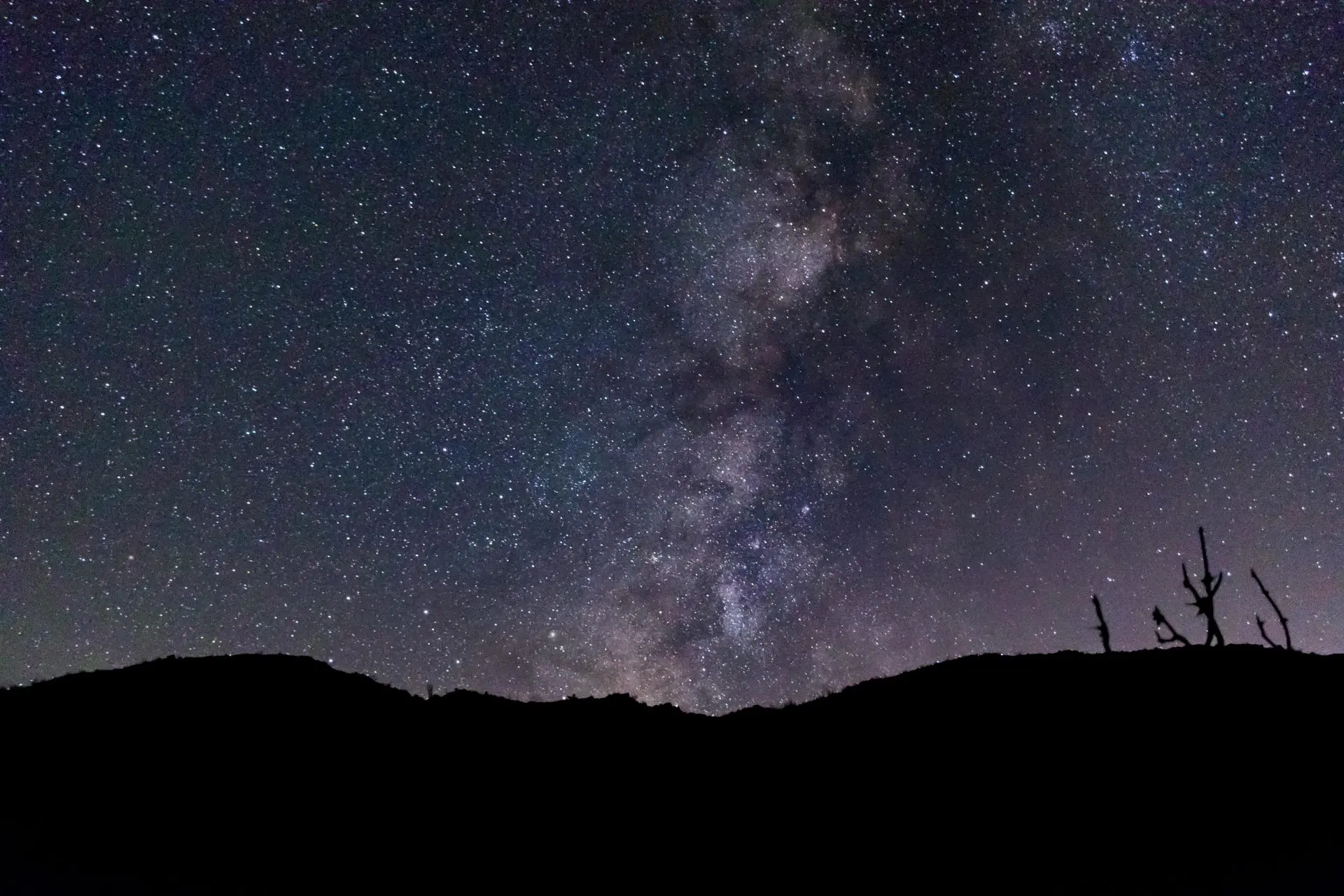The Enigma of Dark Energy: What Is It Really?

Looking for more amazing products? Check out our online store and explore our collection here! Happy shopping!
Before diving in, please note: This post is for informational purposes only. If you’d like to know more about how we approach topics, feel free to check out our friendly Disclaimer Page.
Hey there, amazing readers! 
We’re committed to delivering quality posts, and your support (even just sticking around despite the ads) means everything to us. So, bear with us, and thanks for helping us keep the good vibes rolling. Now, on to the fun stuff!
TRANSLATE BUTTON AT THE END OF THE ARTICLE
A Quick Overview
Dark energy.
The term itself sounds like something pulled from a sci-fi novel, doesn’t it?
But it’s very real and at the forefront of modern cosmology.
This mysterious force is believed to make up about 70% of the universe.
Yet, we still have so many questions about it.
How does it work?
What does it mean for the cosmos?
Why is it essential for our understanding of everything?
Let’s dive into this cosmic enigma together!
Unraveling the Mystery of Dark Energy: An Introduction
The universe is a vast, complex tapestry, and dark energy plays a critical role in its design.
Imagine walking into a room filled with beautiful, intricate objects, but you can’t see one-third of what’s there.
That’s us looking at the universe.
Dark energy is like that unseen part, essential to the whole picture but still shrouded in mystery.
Scientists first stumbled upon dark energy in the late 1990s while observing distant supernovae.
They were surprised to find that these exploding stars were dimmer than expected.
Instead of slowing down, the universe’s expansion was accelerating.
Talk about a cosmic twist!
So, why should we care about dark energy?
Well, it’s tied to fundamental questions about our universe’s fate.
Will it keep expanding forever?
Will galaxies drift apart until they disappear from view?
With dark energy at play, these questions become all the more intriguing.
As we explore this topic, remember: While the mystery of dark energy can feel daunting, it’s also a reminder of how much we have yet to learn.
Isn’t that exciting?
The universe still has a few secrets to share with us!
What Exactly Is Dark Energy? A Simple Breakdown
Let’s break down this concept, starting from the basics.
Dark energy is a term used to describe the mysterious force driving the accelerated expansion of the universe.
Think of it as the universe’s anti-gravity.
Here’s a simpler way to think about it: when you throw a ball up into the air, gravity pulls it back down.
But if something were pushing the ball upwards instead, it would keep going higher and higher.
That’s what dark energy does to galaxies—they’re being pushed apart!
Even though we know it exists, we still don’t know what dark energy truly is.
Some theories suggest it might be a new form of energy filling space uniformly, while others propose it could be linked to modifications in gravity.
In essence, dark energy is a placeholder for something we don’t fully understand yet.
It’s like trying to name a color you’ve never seen!
While we have theories, the reality is that dark energy remains a cosmic riddle.
The Birth of Dark Energy: A Cosmic Surprise!
So, how did dark energy come into play?
The story of dark energy starts with the Big Bang, around 13.8 billion years ago.
After this colossal explosion, the universe began expanding rapidly.
Initially, this expansion was slowing down due to gravitational forces pulling everything back.
However, something changed along the way.
Around five billion years ago, the expansion began to speed up.
Imagine driving a car and suddenly pressing the accelerator.
That’s what happened to the universe!
The discovery of dark energy turned cosmology on its head.
Scientists expected the universe to decelerate over time, but instead, it started speeding up.
This led to a major paradigm shift in how we understand the cosmos.
It transformed our view of space, time, and everything in between.
This cosmic surprise opened doors to new research, theories, and questions.
What caused this dramatic shift?
Was it a specific event, or is there something inherent in the fabric of space itself?
Dark Energy vs. Dark Matter: What’s the Difference?
You might have heard the terms dark energy and dark matter used interchangeably, but they refer to different phenomena.
Think of dark matter as the universe’s scaffolding, while dark energy acts like a cosmic wind pushing everything apart.
Dark matter is the invisible mass that makes up about 27% of the universe.
We can’t see it directly, but we know it exists because of its gravitational effects.
It holds galaxies together and plays a crucial role in the formation of large-scale structures in the universe.
On the other hand, dark energy is believed to make up about 70% of the universe and is responsible for its accelerated expansion.
Unlike dark matter, dark energy doesn’t clump together; it is thought to be homogenous and evenly distributed throughout space.
Here’s a fun analogy: imagine a balloon.
The balloon itself represents dark energy, which stretches and expands.
The decoration on the balloon represents dark matter, holding the structure together.
While both are crucial components of the universe, they exert their influences in very different ways.
How Do We Know Dark Energy Exists? The Evidence
You might be wondering: how do we know dark energy is real?
After all, it’s invisible!
The evidence is rooted in various observations and experiments.
Supernova Observations: As mentioned earlier, astronomers studying distant supernovae found them to be dimmer than expected.
This unexpected dimness indicated that the universe’s expansion is accelerating.
Cosmic Microwave Background (CMB): The CMB is the afterglow of the Big Bang.
Studies of its fluctuations provide essential clues about the universe’s composition, supporting the existence of dark energy.
Large Scale Structure: The way galaxies are distributed throughout the universe hints at dark energy’s influence.
Galaxies are not just randomly scattered; they show a pattern that aligns with our understanding of dark energy.
Galaxy Clusters: Observations of how galaxy clusters behave also support the idea of dark energy.
Their movements and the way they interact with one another can’t be fully explained without it.
This collective evidence paints a compelling picture, leading scientists to conclude that dark energy must be there, even if we can’t see it directly.
It’s like knowing the wind is blowing even when there’s no visible sign of it.
The Role of Dark Energy in the Expanding Universe
To appreciate dark energy, we should understand its role in the universe’s expansion.
When we look out into space, we see galaxies moving away from us.
This isn’t just an illusion; it’s a fundamental aspect of our universe!
The expansion can be compared to raisins in a baking loaf of bread.
As the bread rises, the raisins move farther apart.
In this analogy, dark energy is responsible for the bread’s rising, pushing the galaxies apart.
This expansion has significant implications.
If dark energy continues to drive the universe’s acceleration, it could lead to a future where galaxies drift farther away, eventually becoming invisible to each other.
This scenario raises philosophical questions about our place in the cosmos.
How do we understand a universe that’s constantly expanding?
What does it mean for the fate of galaxies and stars?
Understanding dark energy offers us a glimpse into the universe’s long-term future.
Will it lead to a “big freeze,” where everything becomes so distant that we can’t see it?
Or could there be other, yet undiscovered outcomes?
Theories of Dark Energy: Exploring Possible Explanations
Scientists have proposed several theories to explain dark energy’s nature.
Here are some of the most prominent ones:
Cosmological Constant: This theory suggests that dark energy is a constant energy density filling space homogeneously.
Albert Einstein introduced this idea when he proposed the cosmological constant, a term added to his equations of general relativity.
Quintessence: Unlike the cosmological constant, quintessence suggests that dark energy can change and evolve over time.
It acts like a dynamic field rather than a fixed quantity.
Modified Gravity: Some scientists propose that dark energy might not exist as a separate entity but rather as a modification of gravity itself.
This theory suggests that our understanding of gravity needs to be adjusted on large scales.
Extra Dimensions: In the realm of string theory, some theorists suggest that dark energy could be linked to extra dimensions beyond our familiar three.
These additional dimensions might interact with our universe in ways we don’t fully understand.
Each of these theories has its merits and challenges.
Ongoing research is crucial to test these hypotheses and gain a deeper understanding of dark energy.
Can We Measure Dark Energy? Tools of the Trade
Measuring dark energy is no easy feat, but scientists have developed ingenious methods to study it.
Here are some key tools and techniques:
Supernova Surveys: Observing Type Ia supernovae has been fundamental in measuring cosmic distances.
By comparing their brightness, astronomers can infer how fast the universe is expanding.
Baryon Acoustic Oscillations (BAO): These are ripples in the distribution of matter in the universe, acting like a cosmic ruler.
By analyzing BAO, scientists can gain insights into the expansion rate and dark energy.
Weak Gravitational Lensing: This technique involves studying how light from distant galaxies bends around massive objects.
It provides clues about the distribution of dark matter and the influence of dark energy.
Cosmic Microwave Background Studies: Analyzing the CMB helps scientists understand the universe’s early conditions and how dark energy influences its evolution.
These tools allow researchers to gather data and refine their understanding of dark energy.
While measuring it is challenging, these methods are paving the way for future discoveries.
The Impact of Dark Energy on Cosmic Evolution
Dark energy doesn’t just affect the universe’s expansion; it influences the entire cosmic evolution.
The existence of dark energy alters how galaxies form and cluster together.
For instance, dark energy affects the life cycle of stars.
If the universe were solely governed by gravity, galaxies would eventually collide, and stars would form at different rates.
However, dark energy changes that dynamic.
With the accelerated expansion, galaxies are moving apart, limiting their interactions.
This could lead to a future where star formation slows down, affecting the overall rate at which stars are born and die.
Moreover, dark energy could influence the fate of the universe.
If it remains constant, the universe may continue expanding indefinitely, leading to a cold, dark future.
On the other hand, if it evolves, different outcomes could emerge, possibly even leading to a Big Crunch or other scenarios.
Understanding how dark energy impacts cosmic evolution is crucial for theorizing about our universe’s destiny.
It’s a thrilling thought, isn’t it?
The future of everything hinges on this mysterious force!
The Great Dark Energy Debate: Scientists Weigh In
Despite all the research, dark energy remains a hot topic of debate among scientists.
Ideas are constantly challenged, and new concepts emerge.
Some researchers think dark energy is a fleeting phenomenon, while others believe it might be a fundamental aspect of our universe.
A group argues for modifications to our understanding of gravity.
They suggest that dark energy could be a symptom of something deeper and more complex.
On the other hand, proponents of the cosmological constant see it as a straightforward concept.
The community is vibrant, filled with passionate researchers tackling fundamental questions.
Each perspective adds another layer to our understanding, creating an exciting and dynamic field of study.
This debate also highlights the importance of collaboration.
As scientists from various disciplines come together, they share insights and data, pushing the boundaries of our knowledge.
The journey to unravel dark energy is both collaborative and competitive!
Future Discoveries: Will We Ever Fully Understand It?
The quest to understand dark energy is far from over.
With advancements in technology and data collection, new discoveries are on the horizon.
Projects like the Euclid space telescope and the Vera C.
Rubin Observatory aim to gather unprecedented amounts of data.
As we venture into future studies, we may uncover answers that have eluded us for decades.
Could we finally pinpoint what dark energy is?
Or will we find ourselves with even more questions?
The beauty of science is that it’s always evolving.
Each breakthrough opens new avenues of inquiry.
The excitement of discovery drives researchers to dig deeper, and who knows what they might find next!
The truth is, while we may not fully understand dark energy, the journey is just as valuable as the destination.
Each question leads to new ideas and theories that can transform how we see the universe.
Embracing the Unknown: Why Dark Energy Matters
So, why does dark energy matter?
Beyond its role in cosmic expansion, it touches on profound questions about existence.
Understanding dark energy could unlock the universe’s secrets, offering insights into its origin, structure, and ultimate fate.
Moreover, exploring dark energy encourages curiosity and inspires future generations.
It fosters a sense of wonder about the universe, igniting the spark of discovery in young minds.
In our daily lives, contemplating such vast mysteries can be humbling.
It reminds us that while we may feel small in the grand scheme, our quest for knowledge reflects our innate desire to understand the cosmos.
Embracing the unknown is part of being human.
Dark energy may remain a mystery for now, but isn’t that part of the thrill?
The journey of inquiry can be just as rewarding as the answers we seek.
Conclusion
In conclusion, dark energy is a fascinating and essential component of our universe.
While much remains unknown, ongoing research continues to illuminate this cosmic enigma.
From its role in the universe’s expansion to its potential impact on cosmic evolution, dark energy challenges us to think deeply about existence.
As we look up at the night sky, let’s remember that we’re part of something extraordinary.
The mysteries of dark energy remind us that the universe is more intricate than we can imagine.
The exploration of dark energy is a journey filled with excitement, discovery, and the promise of new insights into the fabric of reality itself.
So, let’s keep our curiosity alive and embrace the wonders of the cosmos!
Who knows what new discoveries await us just beyond the stars?

The Enlightenment Journey is a remarkable collection of writings authored by a distinguished group of experts in the fields of spirituality, new age, and esoteric knowledge.
This anthology features a diverse assembly of well-experienced authors who bring their profound insights and credible perspectives to the forefront.
Each contributor possesses a wealth of knowledge and wisdom, making them authorities in their respective domains.
Together, they offer readers a transformative journey into the realms of spiritual growth, self-discovery, and esoteric enlightenment.
The Enlightenment Journey is a testament to the collective expertise of these luminaries, providing readers with a rich tapestry of ideas and information to illuminate their spiritual path.
Our Diverse Expertise
While our primary focus is on spirituality and esotericism, we are equally passionate about exploring a wide range of other topics and niches 

To ensure we provide the most accurate and valuable insights, we collaborate with trusted experts in their respective domains 
Our blog originally focused on spirituality and metaphysics, but we’ve since expanded to cover a wide range of niches. Don’t worry—we continue to publish a lot of articles on spirituality! Frequently visit our blog to explore our diverse content and stay tuned for more insightful reads.
Hey there, amazing reader! 
Check out our store here and take a peek at some of our featured products below! Thanks for being awesome!










